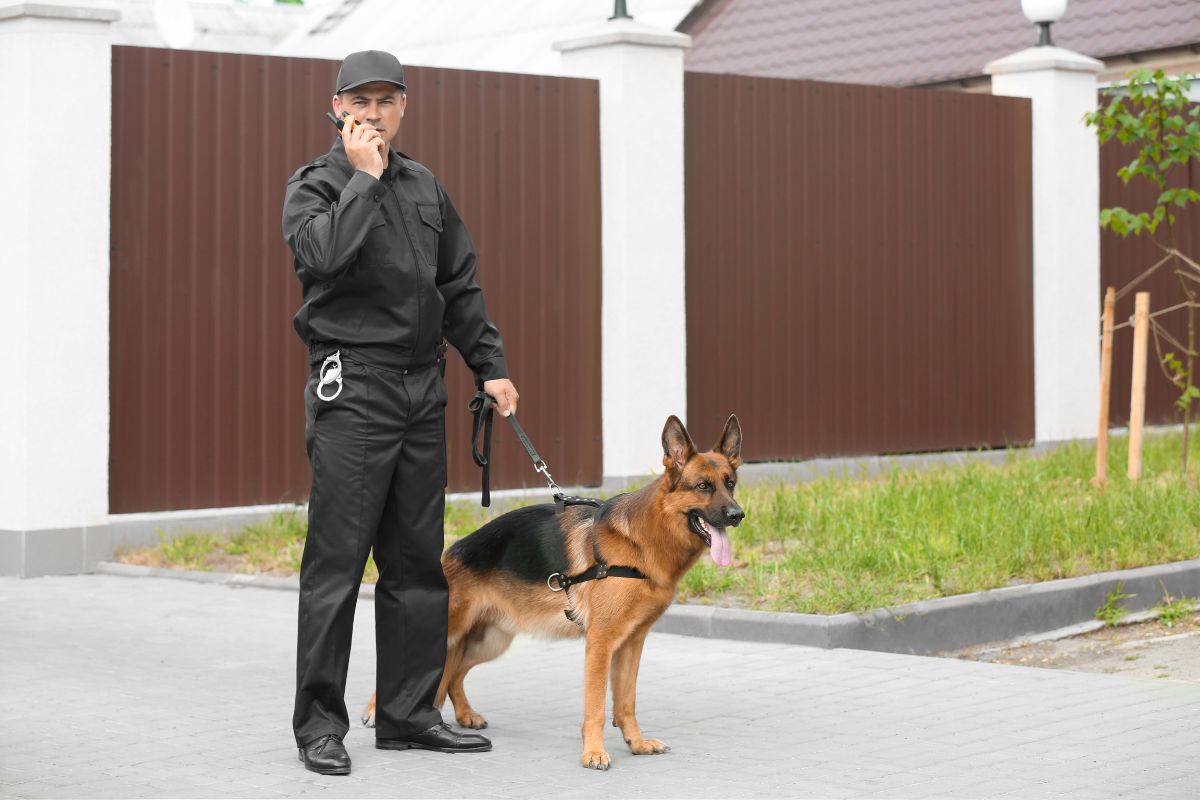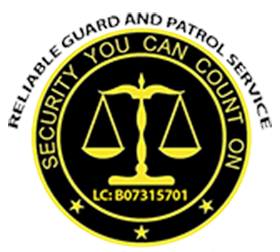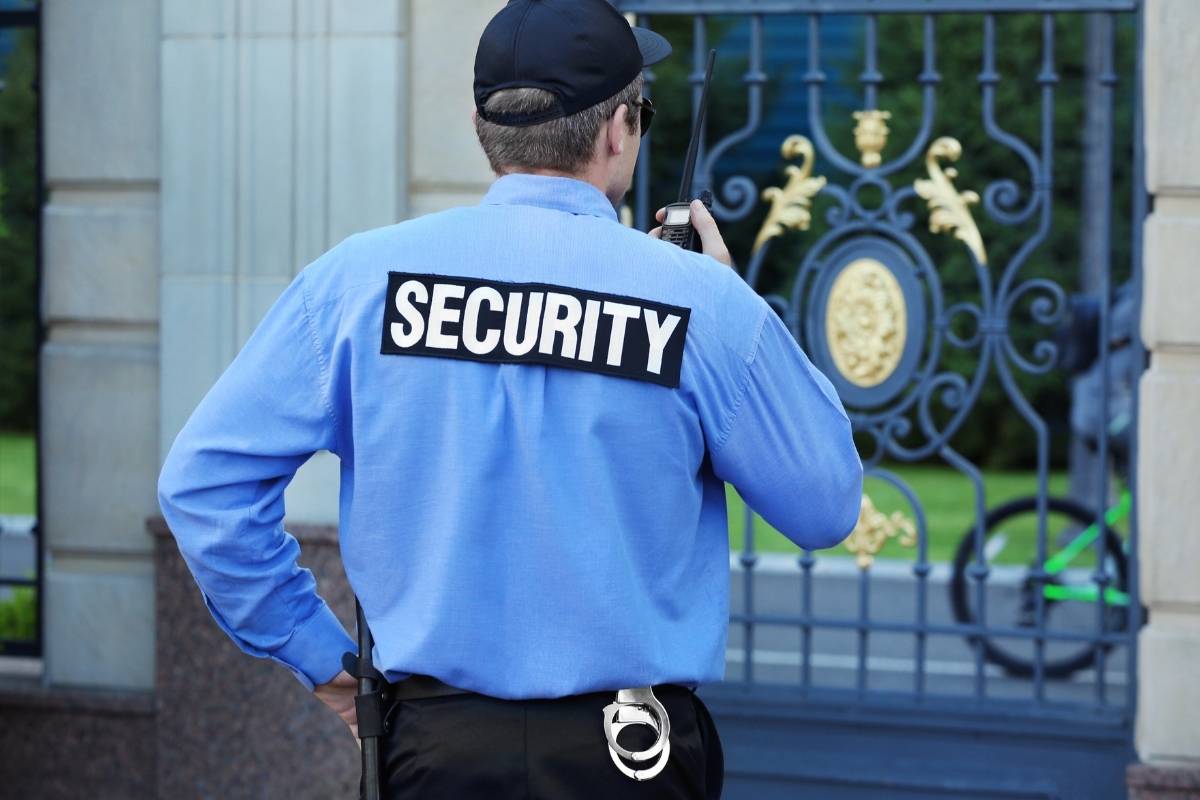
- Sun, Sep 2025
- |
- Reliable Houston Security Guard Service, Inc
Security guards have limited legal authority that differs significantly from law enforcement officers. Unlike police, security guards can only detain individuals briefly when witnessing crimes in progress, cannot conduct searches without consent, and must use reasonable force only for self-defense or property protection. Their authority is restricted to specific property boundaries and they can only enforce legal property rules that comply with anti-discrimination laws and constitutional protections.
Key legal limitations for security guards include:
- No arrest powers beyond brief detention for witnessed crimes
- Cannot search without consent or posted venue policies
- Physical force limited to reasonable self-defense only
- Authority ends at property boundaries
- Must follow state, local, and federal regulations
Security guards ARE legally permitted to: monitor premises, request identification, issue warnings for rule violations, escort trespassers off property, document incidents, and contact law enforcement when needed. These powers vary by state jurisdiction, company policies, and property type.
Violating these legal boundaries can result in: civil lawsuits, criminal charges, loss of security license, termination, and personal financial liability for both the guard and their employer.

Main Legal Restrictions That Apply to Security Guards
Security guards serve as the first line of defense for many businesses and properties. They help maintain order, protect assets, and ensure public safety in various environments. However, their authority is not unlimited and operates within strict legal boundaries. Understanding these restrictions is crucial for both professional security services in Houston and the general public. These limitations exist to protect individual rights while allowing guards to perform their duties effectively.
The legal framework governing security guards varies by jurisdiction but follows common principles nationwide. Guards must balance their protective responsibilities with respect for civil liberties and constitutional rights. Overstepping these boundaries can result in serious legal consequences for both guards and employers. Property owners rely on security guards to enforce rules while staying within legal limits. Professional training helps guards navigate these complex legal requirements and avoid potential liability issues, as emphasized by ASIS International, the leading security industry organization.
Restricted Powers for Making Arrests
Security guards have significantly different arrest powers compared to police officers. Understanding these differences is crucial for both guards and the public. These restrictions exist to protect citizens from overreach and maintain proper legal procedures.
Key limitations include:
- Cannot make arrests like police officers do
- Can only detain when witnessing crimes in progress
- Must have reasonable suspicion before taking action
- Detainment must be brief until police arrive
- No authority to pursue suspects off property
- Cannot question suspects like law enforcement
- Must immediately contact police after detention
These arrest power restrictions vary by state and jurisdiction. Some locations allow citizen’s arrests under specific circumstances. However, armed security guards should always know their local laws before acting. Improper detention can result in false imprisonment charges. Guards must document all incidents thoroughly for legal protection. Training programs help guards understand these complex legal boundaries. Property owners should provide clear policies about detention procedures. When in doubt, guards should observe and report rather than detain. Professional security companies regularly update their training on arrest limitations, following guidelines from the Security Industry Association. Understanding these rules protects both the guard and their employer from liability.
Cannot Conduct Searches Without Permission
Search and seizure rights are strictly limited for security guards in most locations. These restrictions protect individual privacy rights and prevent unauthorized searches. Unarmed security personnel in Houston must understand these boundaries to avoid legal trouble for themselves and employers.
Important search limitations:
- Cannot search people without proper consent
- Need warrant or probable cause for searches
- Bag checks require posted venue policies
- Must respect individual privacy rights
- Cannot force searches on unwilling individuals
- Property policies must be clearly displayed
- Searches must follow constitutional protections
- Exceptions only exist with proper legal backing
Property owners can establish search policies for their venues. These policies must be posted clearly and followed consistently. Visitors entering the property consent to these searches by proceeding. However, searches cannot violate constitutional rights or discrimination laws. Security guards should receive training on proper search procedures. Improper searches can lead to lawsuits and criminal charges. Some venues like airports have special search authority, as noted by NASCO, the National Association of Security Companies. Private property searches differ from public space restrictions. Guards should always verify their search authority before acting. Documentation of search policies protects against legal challenges.
Limited Rights to Use Physical Force
Security guards face strict regulations regarding the use of physical force. These rules protect both the guards and the people they encounter. Understanding force limitations is essential for proper security operations at construction sites and legal compliance.
Key force restrictions include:
- Can only use reasonable force when necessary
- Force must match the level of threat faced
- Cannot use excessive or unnecessary force
- Self-defense and property protection only
- Must attempt de-escalation before using force
- Deadly force is generally prohibited
- All force incidents require detailed documentation
- Training required for proper force application
Excessive force can result in serious criminal charges for security guards. Both the guard and their employer may face legal consequences. The threat level determines the appropriate response from security personnel. Guards should always try to resolve situations peacefully first. Physical force should be the last resort in most situations. Proper training helps guards recognize when force is justified, as outlined in OSHA safety guidelines. Security companies must provide ongoing education about force limitations. Video surveillance can provide evidence of appropriate force use. Guards should immediately report all force incidents to supervisors. Legal counsel may be needed for serious force incidents.
Authority Limited to Specific Property Areas
Security guards operate under strict geographical limitations regarding their authority. These boundaries define where guards can legally exercise their security powers. Understanding jurisdictional limits prevents guards from overstepping their legal authority, particularly important for event security services.
Jurisdictional restrictions include:
- Authority limited to assigned property only
- Cannot enforce laws outside designated areas
- No arrest powers beyond property boundaries
- Must stay within contracted security zones
- Cannot pursue suspects into public areas
- Property lines define legal authority limits
- Different rules apply to public versus private space
- Written agreements specify authorized areas
Guards must clearly understand their property boundaries before beginning work. Operating beyond these limits can void legal protections for guards. Liability issues arise when guards exceed their jurisdictional authority. Property owners should provide maps showing authorized security areas. Guards should verify boundaries with supervisors when uncertain about limits. Public sidewalks and streets typically fall outside security authority. Shopping center security teams may have complex boundary arrangements requiring special attention. Security contracts should clearly define all authorized areas and restrictions, following standards from the Private Security Professionals of America. Guards who exceed their jurisdiction may face personal legal liability. Training programs should emphasize the importance of respecting jurisdictional boundaries.
Can Only Enforce Legal Property Rules
Security guards must ensure all enforced rules comply with applicable laws. Property owners can establish rules, but these cannot violate legal protections. Guards need training to recognize which rules are legally enforceable and appropriate.
Legal enforcement requirements:
- Rules must comply with anti-discrimination laws
- Cannot violate constitutional rights or protections
- Must follow local, state, and federal regulations
- Property policies require legal review and approval
- Rules cannot contradict established legal protections
- Enforcement must be consistent and fair
- Posted policies provide legal backing for enforcement
- Guards cannot create unauthorized rules independently
Property owners bear responsibility for ensuring rule legality. Hotel security guards should question potentially illegal policies before enforcement. Discrimination based on protected characteristics is strictly prohibited, as noted by the Department of Labor. All security policies need regular legal review and updates. Guards must receive training on applicable discrimination and civil rights laws. Inconsistent rule enforcement can create legal liability for properties. Written policies protect both guards and property owners legally. Legal counsel should review all security policies and procedures. Guards who enforce illegal rules may face personal liability. Professional security companies provide ongoing legal training for their personnel.

Actions That Security Guards Are Allowed to Take
Security guards have several important powers they can exercise within their legal authority. These actions help them maintain safety and security on their assigned properties. Understanding what guards can do legally helps both warehouse security personnel and the public. These authorized actions form the foundation of effective security operations.
Permitted security actions include:
- Monitor premises for suspicious activity and report incidents
- Deter crime through visible presence and patrol activities
- Request identification when relevant to security duties
- Issue warnings to individuals who violate property rules
- Escort people off property when circumstances require removal
- Document incidents and maintain detailed security reports
- Contact law enforcement when situations require police intervention
- Provide assistance during emergencies within their training scope
These actions must always be performed within legal boundaries and company policies. Security guards should receive proper training on when and how to exercise these powers. Each action requires appropriate justification and documentation for legal protection. Guards who understand their permitted actions can respond effectively to security situations, as detailed in Security Today magazine. Property owners benefit when guards know exactly what actions they can take legally.
How Legal Rules Change by Location and Company
Legal limitations for security guards vary significantly depending on several important factors. State and provincial laws create different requirements across various jurisdictions nationwide. Understanding these variations is essential for security officers in Pearland, TX working in different locations.
Key factors affecting legal limitations:
- State or provincial laws create specific regional regulations
- Company policies may further restrict guard actions beyond legal minimums
- Local ordinances can add additional requirements or restrictions
- Property type determines specific rules and authority levels
- Contract terms define exact scope of security responsibilities
- Training requirements vary between different states and regions
- Licensing standards differ across jurisdictions and affect guard powers
Security guards must understand the specific laws in their working jurisdiction. Our company policies often provide stricter guidelines than legal minimums allow. Guards working across state lines need training on different legal requirements. Regular updates on law changes help guards maintain compliance with current regulations, as reported by InfoSecurity Magazine. Employers should provide clear guidance on both legal limits and company expectations.
What Happens When Security Guards Break Legal Rules
Security guards who exceed their legal authority face serious consequences for their actions. These penalties protect the public from security overreach and maintain professional standards. Understanding potential consequences helps security guard services in Houston make better decisions in challenging situations.
Possible consequences include:
- Civil lawsuits for false arrest, assault, battery, or privacy invasion
- Criminal charges including kidnapping or false imprisonment in extreme cases
- Loss of security guard license and professional credentials
- Termination from employment and difficulty finding future security work
- Personal financial liability for damages and legal costs
- Criminal record that affects future employment opportunities
- Professional reputation damage within the security industry
These consequences can have lasting impacts on a security guard’s career and life. Both guards and employers may face legal liability for improper actions. Proper training helps prevent situations that lead to legal consequences. Security officers in Sugar Land should provide ongoing education about legal boundaries and proper procedures. When guards understand the serious nature of potential penalties, they make more careful decisions.
Conclusion
Security guards operate within a complex legal framework that balances public safety with individual rights. Understanding these limitations is essential for effective security operations and legal compliance. Guards who know their boundaries can perform their duties confidently while avoiding legal pitfalls. Property owners benefit from well-trained building security services who respect legal restrictions and company policies. Professional training programs help guards navigate these requirements successfully.
The security industry continues to evolve with changing laws and regulations across different jurisdictions. Guards must stay updated on legal requirements through ongoing education and training programs supported by the Houston business community. When security professionals understand what they can and cannot do, everyone benefits from safer environments. Clear policies and proper training create the foundation for effective security services. Remember that these legal limitations exist to protect both security guards and the public they serve. For more information about professional security services, contact us today.
FAQs
Can security guards arrest people like police officers?
Security guards cannot make arrests like police officers in most situations. They can only detain someone briefly when witnessing crimes in progress with reasonable suspicion.
Are security guards allowed to search people and their belongings?
Security guards cannot search people without proper consent or legal authority. Some venues may have posted search policies that visitors agree to by entering.
When can security guards use physical force against someone?
Security guards can only use reasonable force to protect themselves, others, or property. The force used must match the level of threat they are facing.
Do security guards have authority outside their assigned property?
Security guards have no legal authority outside their designated property boundaries. They cannot pursue suspects or enforce laws in public areas beyond their jurisdiction.
What happens if security guards exceed their legal authority?
Guards who exceed their authority may face civil lawsuits and criminal charges. They could also lose their security license and face employment termination.



